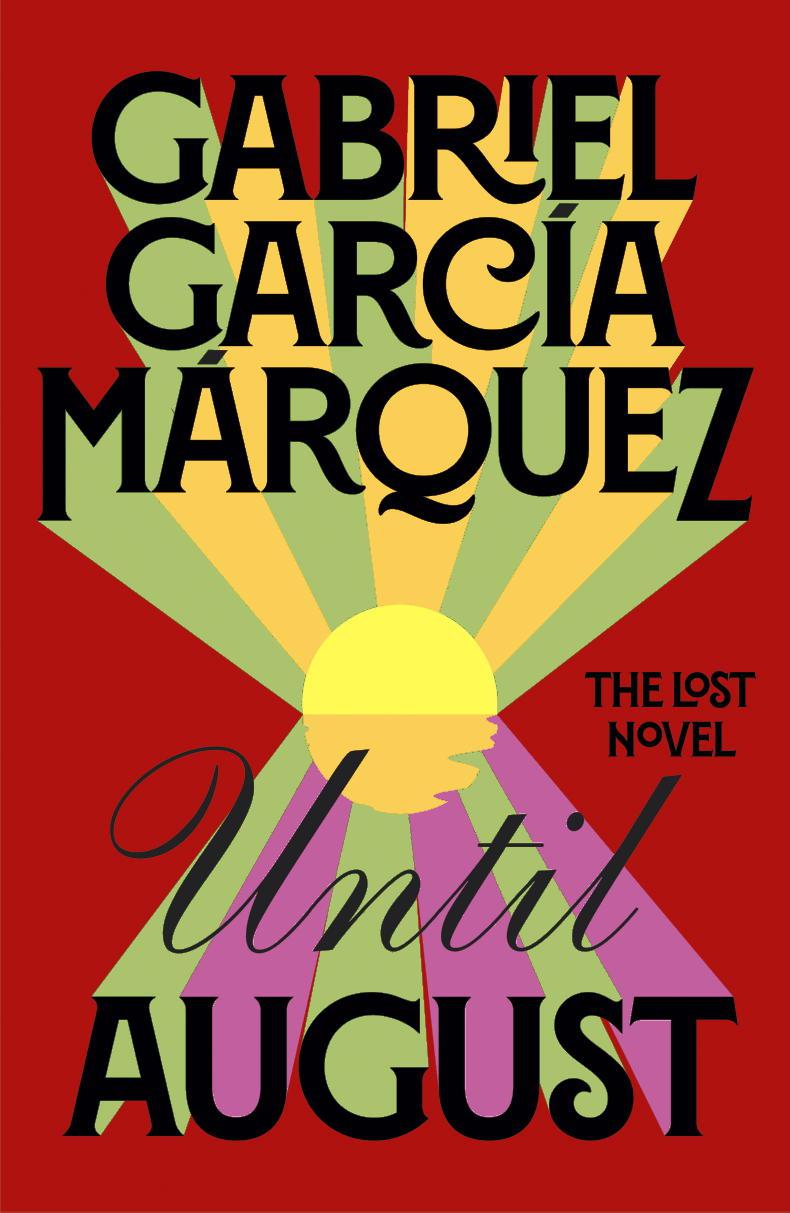Until August by Gabriel García Márquez
The debate rages – should this work have been published? The last novel by the renowned Columbian novelist, short-story writer, screenwriter, journalist, and recipient of the Nobel Prize in Literature in 1982, was never meant to be made public.

García Márquez died in April 2014, and is best remembered for works such as One Hundred Years of Solitude – which sold over 50 million copies – Chronicle of a Death Foretold, and Love in the Time of Cholera. Sadly, he suffered from memory loss due to dementia in his later years, and speaking of Until August, told his three sons that “this book doesn’t work. It must be destroyed”.
After a period of time, his sons decided to go against their father’s wishes, in their words “betraying him”, to give it to the world. They acknowledge that it is “not, of course, as polished as his greatest books”, it has some “rough patches”, but they believe that readers should have access to the work of one of literature’s greatest exponents. Are they right?
Leaving aside the moral question about whether they should have published, Until August is not wholly satisfying. The story is not very long, making it more of a novella. There is much to find fault with, some of it due to the writer’s failing health and some perhaps lost in translation. However, there are glimpses of the brillance of the author in the text.
The storyline
The story is that of the 46-year-old Ana Magdalena Bach, who makes an annual pilgrimage to an island where her mother is buried, bringing to the grave a bouquet of gladioli. Though happily married, with what appears to be a perfect husband, she falls under the spell of a fellow guest at the hotel where she is staying and invites him to her room.
The night is spoiled for Ana, not by the infidelity but rather by the fact that the man leaves a $20 note in the book she is reading.
For four more years, and in spite of a good marriage, Ana repeats the visit to her mother’s resting place, and each time takes a man to her bed. She then understands that if she can be unfaithful, so too could her husband, and with this realisation comes a cooling in their relationship. Jealousy enters their home and the story then has a brilliant twist in it, one to keep you turning the pages to the end.
This is a book that will win no literary prize, has been met with mixed reviews, but has the making of a great film in the right hands. Nonetheless, it is worth reading, as even a flawed work from a master of words is welcome.
•Until August, by Gabriel García Márquez, translated by Anne McLean, is published by Viking €19.99
The Classic - Mansifeld Park
Published 110 years ago, Mansfield Park is a book about money, manners and marriage.

From a large but not too wealthy family, the bashful Fanny Price is sent to live with her rich aunt and uncle in the house that gives the book its name. She finds herself intimidated there by everyone except her kind cousin Edmund. Constantly bursting into tears, she refuses to take part in the racy amateur theatricals staged by her contemporaries.
Despite being somewhat self-righteous, Fanny follows her convictions and she ultimately finds true love. An early work by Austen, Mansfield Park stands apart from the author’s other novels. While Emma and Sense and Sensibility are more lustrous, and Pride and Prejudice more vibrant, Mansfield Park is more substantial. Austen also said that it was her favourite work so that in itself should be the best recommendation. Jane Austen’s work in general set the gold standard for English fiction, and she always displayed a sympathy for her characters.
• Mansfield Park, by Jane Austen, is published by HarperCollins (prices vary)
Relaxing - Mona of the Manor
A regular and very recent visitor to Dublin, Armistead Maupin now lives in England and has expressed no desire to return to the United States, the place of his birth. He will turn 80 years of age in May and is famed for Tales of the City; a series of novels set in San Francisco.
Some years after the last of the series, Maupin wrote a seventh novel, continuing the story of some of the characters. Now he has published the latest, Mona of the Manor, but the scene has changed from San Francisco to a place in the Cotswolds. This book comes a decade after he declared an end to the Tales of the City journey, and what a joy it is that he changed his mind.

This is a book to simply enjoy; an unserious novel that is entertaining. The American Mona finds herself lady of the manor following the death of her husband, Lord Teddy Roughton. She and her adopted son Wilfred are trying their best to save the crumbling Easley House. This is a bedside book to savour.
• Mona of the Manor, by Armistead Maupin, is published by Doubleday €23.40
Thought Provoking - No Peace Until He’s Dead
The death of Davy Tweed following a motorbike accident led to many wholesome comments about the ‘great sporting and political hero’.
The Northern Ireland unionist politician won four caps for Ireland in rugby, but Tweed also served four years of an eight-year prison sentence for child sex abuse. This conviction was later quashed on a technicality. In light of the serial physical and sexual abuse he committed, his stepdaughter Amanda Brown has written a searingly honest account of the unimaginable sexual abuse she and others suffered at the hands of Tweed, in her case from the age of eight.

Amanda’s testimony was key to securing Tweed’s conviction. This memoir was born of the need to debunk the image of the man as an upstanding member of society, and chart Amanda’s journey of recovery. The book is a harrowing account of her life, but also one that will give hope to other victims of abuse. The past can be overcome and happiness found, as Amanda has done.
• No Peace Until He’s Dead, by Amanda Brown, is published by Merrion Press €18.99
Read more
The Book Corner
Leo Powell's book corner
Until August by Gabriel García Márquez
The debate rages – should this work have been published? The last novel by the renowned Columbian novelist, short-story writer, screenwriter, journalist, and recipient of the Nobel Prize in Literature in 1982, was never meant to be made public.

García Márquez died in April 2014, and is best remembered for works such as One Hundred Years of Solitude – which sold over 50 million copies – Chronicle of a Death Foretold, and Love in the Time of Cholera. Sadly, he suffered from memory loss due to dementia in his later years, and speaking of Until August, told his three sons that “this book doesn’t work. It must be destroyed”.
After a period of time, his sons decided to go against their father’s wishes, in their words “betraying him”, to give it to the world. They acknowledge that it is “not, of course, as polished as his greatest books”, it has some “rough patches”, but they believe that readers should have access to the work of one of literature’s greatest exponents. Are they right?
Leaving aside the moral question about whether they should have published, Until August is not wholly satisfying. The story is not very long, making it more of a novella. There is much to find fault with, some of it due to the writer’s failing health and some perhaps lost in translation. However, there are glimpses of the brillance of the author in the text.
The storyline
The story is that of the 46-year-old Ana Magdalena Bach, who makes an annual pilgrimage to an island where her mother is buried, bringing to the grave a bouquet of gladioli. Though happily married, with what appears to be a perfect husband, she falls under the spell of a fellow guest at the hotel where she is staying and invites him to her room.
The night is spoiled for Ana, not by the infidelity but rather by the fact that the man leaves a $20 note in the book she is reading.
For four more years, and in spite of a good marriage, Ana repeats the visit to her mother’s resting place, and each time takes a man to her bed. She then understands that if she can be unfaithful, so too could her husband, and with this realisation comes a cooling in their relationship. Jealousy enters their home and the story then has a brilliant twist in it, one to keep you turning the pages to the end.
This is a book that will win no literary prize, has been met with mixed reviews, but has the making of a great film in the right hands. Nonetheless, it is worth reading, as even a flawed work from a master of words is welcome.
•Until August, by Gabriel García Márquez, translated by Anne McLean, is published by Viking €19.99
The Classic - Mansifeld Park
Published 110 years ago, Mansfield Park is a book about money, manners and marriage.

From a large but not too wealthy family, the bashful Fanny Price is sent to live with her rich aunt and uncle in the house that gives the book its name. She finds herself intimidated there by everyone except her kind cousin Edmund. Constantly bursting into tears, she refuses to take part in the racy amateur theatricals staged by her contemporaries.
Despite being somewhat self-righteous, Fanny follows her convictions and she ultimately finds true love. An early work by Austen, Mansfield Park stands apart from the author’s other novels. While Emma and Sense and Sensibility are more lustrous, and Pride and Prejudice more vibrant, Mansfield Park is more substantial. Austen also said that it was her favourite work so that in itself should be the best recommendation. Jane Austen’s work in general set the gold standard for English fiction, and she always displayed a sympathy for her characters.
• Mansfield Park, by Jane Austen, is published by HarperCollins (prices vary)
Relaxing - Mona of the Manor
A regular and very recent visitor to Dublin, Armistead Maupin now lives in England and has expressed no desire to return to the United States, the place of his birth. He will turn 80 years of age in May and is famed for Tales of the City; a series of novels set in San Francisco.
Some years after the last of the series, Maupin wrote a seventh novel, continuing the story of some of the characters. Now he has published the latest, Mona of the Manor, but the scene has changed from San Francisco to a place in the Cotswolds. This book comes a decade after he declared an end to the Tales of the City journey, and what a joy it is that he changed his mind.

This is a book to simply enjoy; an unserious novel that is entertaining. The American Mona finds herself lady of the manor following the death of her husband, Lord Teddy Roughton. She and her adopted son Wilfred are trying their best to save the crumbling Easley House. This is a bedside book to savour.
• Mona of the Manor, by Armistead Maupin, is published by Doubleday €23.40
Thought Provoking - No Peace Until He’s Dead
The death of Davy Tweed following a motorbike accident led to many wholesome comments about the ‘great sporting and political hero’.
The Northern Ireland unionist politician won four caps for Ireland in rugby, but Tweed also served four years of an eight-year prison sentence for child sex abuse. This conviction was later quashed on a technicality. In light of the serial physical and sexual abuse he committed, his stepdaughter Amanda Brown has written a searingly honest account of the unimaginable sexual abuse she and others suffered at the hands of Tweed, in her case from the age of eight.

Amanda’s testimony was key to securing Tweed’s conviction. This memoir was born of the need to debunk the image of the man as an upstanding member of society, and chart Amanda’s journey of recovery. The book is a harrowing account of her life, but also one that will give hope to other victims of abuse. The past can be overcome and happiness found, as Amanda has done.
• No Peace Until He’s Dead, by Amanda Brown, is published by Merrion Press €18.99
Read more
The Book Corner
Leo Powell's book corner









SHARING OPTIONS